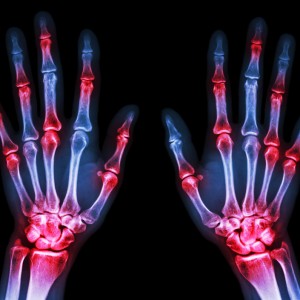 According to a recent study published in the journal Arthritis Research & Therapy, approximately one third of women with Rheumatoid Arthritis (RA) that have a low SCORE value and are aged > 49.5 years or/and have a total cholesterol concentration of > 5.4 mmol/l, experience high risk of atherosclerosis, requiring CVD risk management.
According to a recent study published in the journal Arthritis Research & Therapy, approximately one third of women with Rheumatoid Arthritis (RA) that have a low SCORE value and are aged > 49.5 years or/and have a total cholesterol concentration of > 5.4 mmol/l, experience high risk of atherosclerosis, requiring CVD risk management.
Rheumatoid arthritis (RA) is a chronic inflammatory disease that increases the risk of atherosclerotic cardiovascular events, however, traditional risk factors do not explain the increased cardiovascular disease (CVD) risk in patients with RA. The EUropean League Against Rheumatism (EULAR) recently reported recommendations for CVD risk management in inflammatory arthritis including RA, which comprised risk stratification based on the Systematic COronary Evaluation Score (SCORE), a multiple major traditional risk factor equation, together with the use of a multiplier of 1.5 when 2 of 3 criteria were met; the latter consisted of a disease duration >10 years, rheumatoid factor or/and anticyclic citrullinated positivity and the presence of severe extra articular manifestations, thereby providing a modified (m) SCORE in patients with RA.
In their study entitled “Carotid arteryplaque in women with rheumatoid arthritis and low estimated cardiovascular disease risk: a cross-sectional study,” Patrick H Dessein from the Cardiovascular Pathophysiology and Genomics Research Unit at the University of the Witwatersrand in Johannesburg, South Africa and colleagues aimed to identify predictors of carotid plaque presence in women with Rheumatoid Arthritis with low CVD risk according to the SCORE. A total of 144 women with low risk of CVC undertook CVD risk factor record and carotid artery ultrasound.
Results revealed that carotid artery plaque was seen in 35 of women with RA. The number of synthetic disease modifying agents, total cholesterol and age, were all independently linked to the presence of carotid plaque. The value for prediction of presence of plaque by age was 49.5 years (sensitivity 74%; specificity 75%) and for total cholesterol, it was 5.4 mmol/l (sensitivity 63%; specificity 70%). The plaque incidence was 37.5% in patients aged over 49.5 years or/and total cholesterol of > 5.4 mmol/l, respectively, in comparison to 7.8% in those aged 49.5 years or more with an/or total cholesterol of ≤ 5.4 mmol/l, respectively.
In this study, the researchers were able to identify potential predictors of high risk for atherosclerosis in patients with RA with low estimated CVD risk by SCORE. The increase in plaque prevalence over time among the respective cases in the study further emphasizes the need for external validation.


